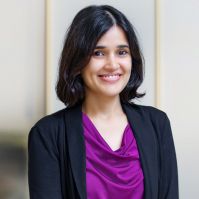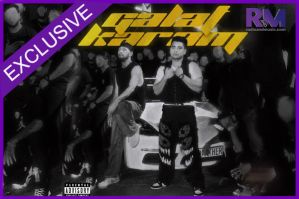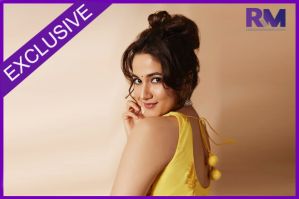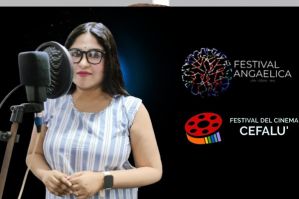DJ Akbar Sami - 'At last, it is a good feeling when you see people dancing to your tunes!'

Indian remix guru, DJ Akbar Sami shot to fame with his first remix album'Jalwa'. There has been no looking back since.
A veteran now, Sami intends to float a DJ association and start educating aspirants to the field, by early 2009. Some of the recognitions that have come his way over the years include, the All Asian DJ Championship and Channel [V]'s Best Indian Club DJ. He tried his hand at remixing some of the Bollywood numbers too, to finally become a music director himself, with Fast Forward. In a chat with Radioandmusic.com's Anita Iyer, the undisputable remix king converses about DJing merging into Bollywood, DJing as profession and his future projects.
Excerpts:
After being in the scene for decades, you have turned composer for a Bollywood movie…
In the past few years, remix songs have become a part of Bollywood films. I have also composed remix versions of originals for some numbers. Many Bollywood songs are becoming chartbusters because of their remix versions. I am happy that my work got noticed and Anjum Rizvi approached me to compose songs for Fast Forward.
What inspired you to compose songs for Fast Forward?
It is a musical and I have composed the track according to the movie's script. I completely scrapped the whole song four times because it wasn't complementing the script. Fast Forward has six tracks and seven instrumental versions, with a mix of romantic love numbers and dance songs too.
Have you lent your voice to any of the songs?
I haven't, but have rendered some voiceover on the musical tracks. The main singers are Shaan, Kunal Ganjawala, Sunidhi Chauhan and Amit Kumar, who sings a song with a Kishore da feel to it.
By composing a single track for a Bollywood album, are DJs denied their due credit?
There are times when many young DJs end up composing remixes at minimal or no price at all for the sake of recognition and for being part of a Bollywood album. I was taken for a ride once in 2005 during the making of Aashiq banaya Aapne, when I wasn't given any credit for my remix versions on the CD. The remix versions mentioned Himesh Reshammiya and all I got was a small line of credit. I hope we are credited for our works in Bollywood.
Now that you have composed for Bollywood, how different is DJing?
Being a music director, you are producing music and as a DJ you are performing and remaking that original song. DJs reproduce a song by mixing other composers' music. At last, it is a good feeling when you see people dancing to your tunes!
I think the other way, too! I would say remixes make the original songs popular. If you look at some of my past remix compositions for Bollywood songs, it is the remix version that rules the charts, played in clubs and on radios.
Are music labels open to the concept of launching remix albums by DJs?
It is because of the wrong people composing flops that remix songs have lost their market. It is a shame for the music industry to say that remixes don't work, when the labels are earning because of them. It is not that remixes don't have a market; it is just that the people composing the remixes are not doing their jobs right. We must blame the artistes and not the remix genre. It would take 10-15 years from now for DJing in India to make a place for itself.
How do the DJs establish themselves when no music labels are supportive?
Many DJs are investing themselves for the audio and video production of their albums. So, we have DJs hovering all over in their videos who keep themselves on the forefront, rather than their music taking centrestage.
What is your take on new DJs who have entered the field?
There are many youngsters today who take up the profession because of the fame it gives and the tag'DJ' it confers before their name. To become a DJ, you have to have a sense of rhythm, love and passion for music. If that natural inclination and dedication for music is lacking, there is no point in taking up DJing as a profession.
You don't become a DJ by just donning headphones, downloading a couple of songs or borrowing some CDs and playing back to back tracks. Every second person today is a DJ and at every party, there are 25 people claiming to be a DJ.
Did you always aim to be a DJ in life?
I became a DJ by chance, I was a dance choreographer and I had no clue about mixing music. Long back, the manager of a console asked me to play songs as their DJ was missing and at the end of the evening, even offered me a DJ's job. It was then that I started to learn the skills of DJing, right from learning the basic things like a mixer, microphone and here I am - DJ Akbar Sami.
How is DJing in India different from DJing abroad?
DJing abroad goes back to the 1960s, when artistes like Carl Brown had two versions of their albums, the video version and the club version meant for clubs. They reworked the rhythms and added heavy thumbs to the original tracks to hit the dance floors. In India, primarily, we have a classical background and Bollywood rules, so there is a lack of variety. Also, there is a lack of understanding about the remixes and proper medium to educate youth about DJing.
As you said, there is a lack of proper education, so do you plan to come up with any medium to educate?
I have planned to come up with a DJ Association by early 2009 with composer Jatin Sharma, where we would be signing DJs on, and channelising them in a proper manner. Also, we have plans of getting into production by coming up with a recording studio and opening an institute for providing formal DJ training.
What are your future projects?
After Fast Forward, I am composing for another Bollywood film,'Bombay Mast Kalandar' and am cutting an album Jalwa 2008 with Times Music. The album, which is my third official Jalwa album, would be out in two months.

















